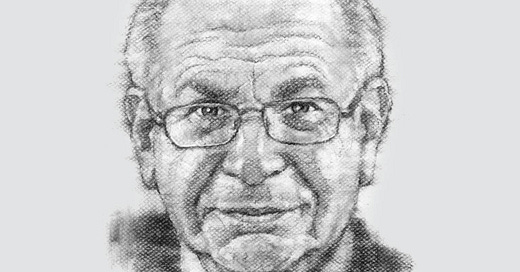A number of years ago, fresh out of grad school, I had a final round interview for a consulting job in Boston. I had flown in from San Diego to meet the team there, and to spend some time with the firm’s head of product innovation.
The office at that time was downtown in a cartoonish corporate building. Think right angles and various shades of beige. I met with a few members of the team, toured the space, and when it was time to meet with the head of innovation, I was led to a part of the office that was lovingly called the “bird’s nest.”
These offices were up a back door flight of stairs and housed a sort of skunk works product development team. My memory of that office space was that it was brighter—were the walls white not beige?—had more natural light, and had the scattered stacks of books and papers and post-it note covered walls you might hope to find in such a place.
It was in that office, that I sat down for a brief interview that altered the way I think.
The simple question that had this profound impact was this: “Whose work do you admire in your field?”
Being asked this question in an interview is a good way to go completely blank and have nothing useful to say. However, I was able to offer at least one name, which was Edgar Schein. Schein was a brilliant writer and psychologist; among other impactful ideas, he created the foundational model of organizational culture. His books (e.g., Helping, Process Consultation, Humble Inquiry, Organizational Culture and Leadership) and his way of writing have dramatically influenced how I think about work, organizations, and coaching/consulting in general.
In response to the name, my interviewer said something like, “I love Ed Schein. I had the chance to take him out for coffee not long ago.”
“Um. How?” I said.
“I knew he was going to be speaking at a conference I was attending,” he said, “so I just reached out, told him how much I appreciated his work, and asked him if I could buy him a coffee.”
That’s it. That was the insight. I recognize how mundane it is, but it was a new door opening. One simple question reframed how I saw the writers and thinkers I admired in grad school. They weren’t just distant intellectual giants. They were just people, people I could reach out to and interact with.
That year I started reaching out to writers I admired, just to express my appreciation for their work and to see if they would respond.
I emailed Daniel Kahneman, esteemed psychologist, “grandfather of behavioral economics”, and winner of the 2002 Nobel Prize in economics, two years ago to the day.
I told him that I had been thinking about applying to graduate school when his book Thinking, Fast and Slow (FSG, 2011) came out, and that after reading it, I knew I had to study psychology. I told him I wanted to write like him, and I asked him for some writing advice—any tips on making the shift from academic writing to writing for a broader audience?
When I saw his reply in my inbox within the hour, it felt surreal. His reply was short and to the point:
“I’m afraid I can’t help. I’m such a painful writer that I can’t be a model to anyone.”
Best,
Danny
This was a Nobel laureate, a veritable genius, and here he was, responding to me like one of his students or colleagues. Knowing that Danny (we were pen pals once…) found writing as challenging as I do has been a genuine comfort and encouragement to continue on at times. And all I had to do to learn that was write him a brief email.
Yes, this is a dumb hobby. But it’s useful too. And here’s why I think you should try it:
Humanize Your Icons
Reaching out reminds you that the people you admire are just that—people. This can be empowering, it’s a reminder that success and fame don’t (always) erase people’s ability to care, connect, and be generous with their time.
Challenge Your Self-Doubt
Self-doubt tells you not to bother, that you’ll be ignored; reaching out can prove you wrong. You may not get a reply, but just the act of reaching out can be a small nudge against that whisper of imposterism.
Build Bridges
Not every message gets a reply, but sending one creates potential. A response might bring motivation, insight, or even an unexpected dialogue.
Gain Some Perspective
A reply, no matter how brief, can shift your perspective. Whether it’s wisdom, a kind word, or a thoughtful question, it can reshape how you see your work—or yourself.
Express Your Gratitude
Reach out in gratitude. It’s a way to honor someone’s impact on your life. If they reply, it often feels like an affirmation of your own curiosity and willingness to engage. If they don’t, you’ll have put words to that feeling of appreciation, and perhaps learned something about the shape of someone’s influences in your life. That’s valuable.
So, who are you going to reach out to? A writer? An actor? A leader? Start writing a letter today. You might not get a reply—or you might—either way, you’ll have taken a step in the direction of curiosity and connection, and that feels like the right direction to go.
PS. It was this silly hobby that made it easier to cold email a few well known authors for much needed (and appreciated) book blurbs for Everyday Leadership (available next Wednesday, December 11th! Pre-order and have it delivered on launch day HERE).
Net month, once I have copies of the book on hand, I’ll kick it up a notch and mail a few hard copies with handwritten letters to people whose work I admire. Just sending off little serendipity machines into the world. Will be fun to see what, if anything, comes of it.





